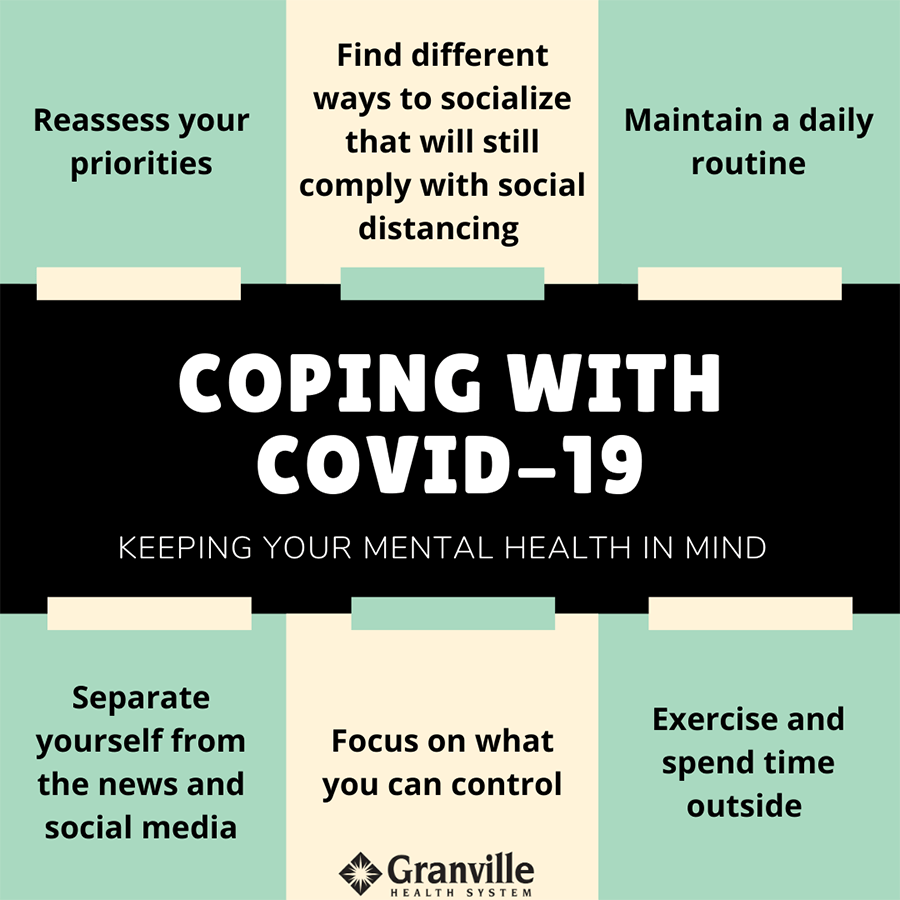
What Is Coronavirus?
Coronaviruses (CoV) are a large family of viruses. There are many common human coronaviruses that cause symptoms of the common cold. COVID-19 is a new disease, caused by a novel (or new) coronavirus that has not previously been seen in humans.
How Does COVID-19 Spread?
According to the Centers for Disease Control and Prevention, the COVID-19 virus is spread much like influenza: person-to-person through close contact (within about 6 ft.), via respiratory droplets when someone coughs or sneezes, and to a lesser extent through contact with infected surfaces.
What Are The Symptoms To Watch For?
Symptoms may include fever, cough, and shortness of breath 2-14 days after exposure. Symptoms can be mild to severe illness, and result in pneumonia.
What Is The Difference Between Covid-19 Symptoms And The Flu?
COVID-19 symptoms can often be confused with influenza.
FLU |
COVID-19 |
|---|---|
| Fever/Chills | Fever |
| Cough | Cough |
| Sore Throat | Shortness of Breath |
| Runny/Stuffy Nose | Congestion or Runny Nose |
| Muscle/Body Aches | Muscle/Body Aches |
| Headaches | Headaches |
| Fatigue | Fatigue |
| Possible Vomiting/Diarrhea | Nausea/Vomiting/Diarrhea |
| Shortness of Breath | |
| New Loss of Taste or Smell |
What To Do:
To protect yourself and others:
- Hand hygiene is the most important! Frequently wash your hands with soap and water for at least 20 seconds. Alcohol based gels are good if your hands are not visibly soiled.
- Cover your cough/sneeze! Use a tissue or your sleeve, not your hand.
- Avoid large crowds. Try to stay 6 feet away from others, especially if you have underlying health conditions.
- Wear a mask in indoor public places. Consider wearing a mask in outdoor crowded settings.
If you are sick:
- Stay home if you are ill. This will prevent the spread to others.
- Wash hands often
- Disinfect surfaces and high-touch areas around your home.
- Try to stay 6 feet away from persons in your home, stay in a separate bedroom, if available.
- Call your doctor for mild symptoms instead of going to the office. If they need to see you, it will alert them of your illness so they can take precautions when you arrive.
What Is Granville Health System Doing To Prepare?
- GHS is staying well-informed and preparing to care for any patients that come to us with symptoms.
- We are continuing to screen patients arriving to our medical practices, Emergency Departments and Brantwood Nursing & Rehab Center for a history of international travel, recent respiratory illness, and/or contact with someone with a confirmed diagnosis of COVID-19, or under investigation for COVID-19, or are ill with respiratory illness.
Testing for COVID-19:
We are committed to providing the best care for our patients that we possibly can. We follow CDC guidelines regarding screening related to symptoms, history of travel, and/or close contact with affected individuals. COVID-19 testing requires an order from a provider based on the screening criteria and the patient’s symptoms. The cash price (self-pay, no insurance) for the COVID-19 test is $154.40 (pathology and/or lab fees may be added). The cash price for COVID-19 Antibody Testing is $62.00.
COVID-19 Vaccines:
Please visit the COVID-19 Vaccine page for information on vaccine clinics and to schedule an appointment for a vaccine.
If you have severe symptoms of respiratory illness, please go to the emergency department. Call ahead and let them know you are coming and tell them about your recent travel and your symptoms.
Granville Medical Center may consider exceptions to any visitation procedures and guidelines on a case-by-case basis. Exceptions might include certain compassionate care situations, such as an end-of-life situation. Additionally, in lieu of visits, the facility encourages alternative means of communication such as virtual communication, including telephone calls and video communication through personal devices.
Click here for updated GHS patient and visitor policy.
Stay Up-To-Date On COVID-19
The status of COVID-19 is changing constantly. Be sure to check reliable sources for information.
The Center for Disease Control (CDC) information for the public





